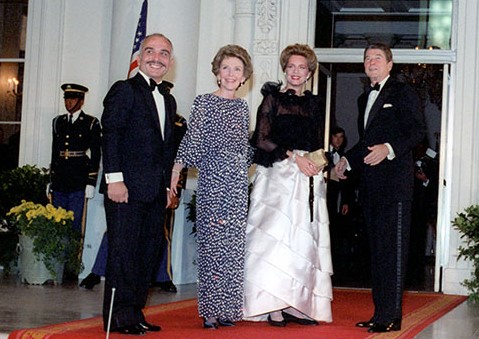
July 31, 1988
King Hussein of Jordan announces his intention to politically disengage from the West Bank, leaving the PLO to fill the political vacuum. However, he seeks to retain influence over Jerusalem.
In 1950, against the wishes of the Arab League, King Hussein’s grandfather, King Abdullah I, had annexed the West Bank and East Jerusalem. Jordan retained control of these areas until the June 1967 war, when Israel acquired them. For the next 20 years, Jordan attempted to reacquire the land through secret talks.
One such attempt to regain this territory was the United Arab Kingdom Plan, proposed by King Hussein in March 1972. In this plan, the East and West Banks of the Jordan River were to be linked, subject to Palestinian approval. The PLO and Israel immediately rejected the plan, and the rest of the Arab World followed suit. The Arab League subsequently recognized the PLO as the sole legitimate representative of the Palestinian people in 1974.
After years of tension with the PLO about who should negotiate with Israel for the West Bank’s future, King Hussein finally withdrew all claims to this land in 1988. His speech came in the aftermath of Palestinian violence, the first intifadah against Israel. The intifadah had forced him to recognize that the Palestinians wanted their own independent state, not one that was administered by Jordan.
Disassociation from the West Bank ensured Jordan’s longevity, as it now focused exclusively on the East Bank of the Jordan River. This gave King Hussein greater freedom to sign a peace treaty with Israel, which he did in October 1994.
